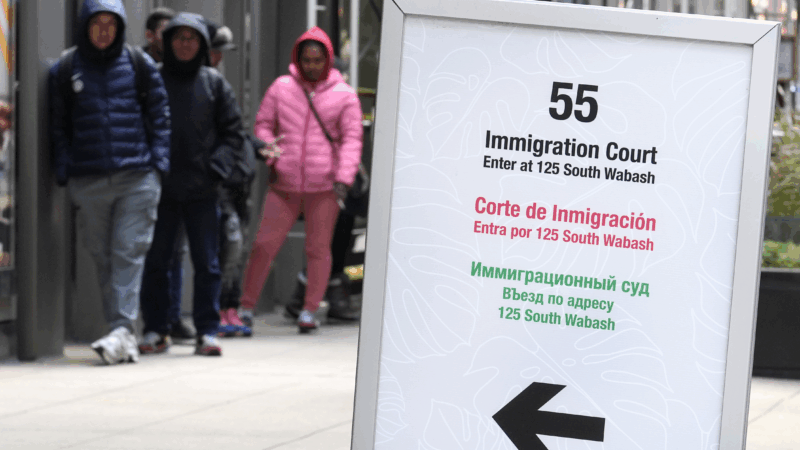FTC sues Live Nation and Ticketmaster alleging illegal resale tactics
The Federal Trade Commission filed a lawsuit against Ticketmaster and its parent company, Live Nation, on Thursday, alleging that the company willingly misleads consumers about ticket prices and cooperates with scalpers to markup resale prices — all at the expense of artists and music fans. Colorado, Florida, Illinois, Nebraska, Tennessee, Utah and Virginia are all plaintiffs in the FTC’s complaints.
“American live entertainment is the best in the world and should be accessible to all of us,” said FTC Chairman Andrew N. Ferguson in a statement. “It should not cost an arm and a leg to take the family to a baseball game or attend your favorite musician’s show.”
The lawsuit, filed in the U.S. District Court for the Central District of California, accuses Ticketmaster and Live Nation — the largest ticketing and live entertainment company in the country — of participating in three main illegal practices.
First, the FTC alleges that Ticketmaster engages in a “bait and switch approach,” meaning they post ticket prices at deceptively low prices that then increase by 30% or more during checkout due to additional fees. The complaint alleges that Ticketmaster has “reaped massive profits by misrepresenting the total price of tickets to consumers, who pay billions of dollars each year in mandatory fees not reflected in the list price.”
Although artists set prices and limits for how many tickets each user can buy in an attempt to make the process more accessible for fans, the FTC also alleges that Ticketmaster knowingly allows scalpers to exceed these limits. According to the lawsuit, “brokers” are able to purchase thousands of tickets to a single event and then resell them on Ticketmaster’s secondary market for significantly higher prices. The FTC says this is possible because Ticketmaster and Live Nation “knowingly allow, and in fact even encourage, brokers to use multiple Ticketmaster accounts to circumvent Ticketmaster’s own security measures and access control Systems,” which is a direct violation of the Better Online Ticket Sales Act.
While Ticketmaster has argued that scalpers and bots are the reason fans miss out on face value tickets in the first place, the FTC claims Ticketmaster is knowingly benefitting from this system by “triple dipping” on fees — first when scalpers buy them in the primary market, followed by when they list them on the resale market, and finally when fans buy them secondhand. The FTC estimates that Ticketmaster has charged $3.7 billion in fees on resale tickets from 2019 through 2024.
Live Nation and Ticketmaster have not responded to NPR’s requests for comment.
The FTC complaint follows an antitrust lawsuit filed by the Department of Justice and 30 states in 2024 to break up Ticketmaster and Live Nation, citing concerns that an illegal monopoly over ticketing, promotion, venue ownership and management could drive up ticket prices.
“The DOJ’s lawsuit won’t lower ticket prices for fans or address the issues they care about—service fees and access to in-demand shows,” Live Nation said in a statement to NPR earlier this year. “The real problem is the secondary market where resellers drive up prices and siphon billions out of the industry, hurting both artists and fans.”
Last August, the United Kingdom’s Competition and Market Authority launched an investigation into Ticketmaster’s use of dynamic pricing for Oasis reunion ticket sales. In 2022, Taylor Swift fans filed a lawsuit against Ticketmaster and Live Nation accusing the companies of price gouging tickets for the Eras Tour.
Nancy Guthrie search enters its second week as a purported deadline looms
"This is very valuable to us, and we will pay," Savannah Guthrie said in a new video message, seeking to communicate with people who say they're holding her mother.
Immigration courts fast-track hearings for Somali asylum claims
Their lawyers fear the notices are merely the first step toward the removal without due process of Somali asylum applicants in the country.
Ilia Malinin’s Olympic backflip made history. But he’s not the first to do it
U.S. figure skating phenom Ilia Malinin did a backflip in his Olympic debut, and another the next day. The controversial move was banned from competition for decades until 2024.
‘Dizzy’ author recounts a decade of being marooned by chronic illness
Rachel Weaver worked for the Forest Service in Alaska where she scaled towering trees to study nature. But in 2006, she woke up and felt like she was being spun in a hurricane. Her memoir is Dizzy.
Bad Bunny makes Puerto Rico the home team in a vivid Super Bowl halftime show
The star filled his set with hits and familiar images from home, but also expanded his lens to make an argument about the place of Puerto Rico within a larger American context.
Japan’s Takaichi to pursue conservative agenda after election landslide
Japan's first female Prime Minister, Sanae Takaichi, brought the ruling Liberal Democratic Party its biggest-ever electoral victory, fueling her ambitions to pursue to a political agenda which she says could "split public opinion."







